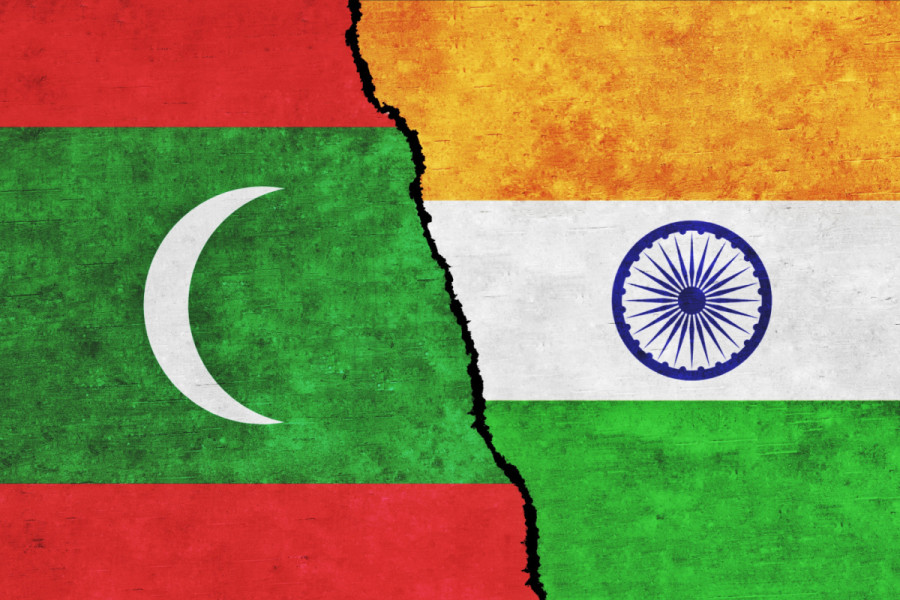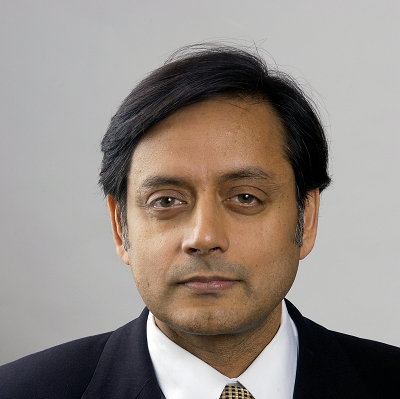Columns
Why is the Maldives spurning India?
A diplomatic conflict playing out between India and the Maldives is threatening India’s strategic interests.
Shashi Tharoor
Far from the headline-grabbing wars in Ukraine and Gaza, in a corner of the Arabian Sea, a bizarre diplomatic conflict has been playing out between India and the Maldives. And it is threatening India’s strategic interests.
India and the Maldives are unlikely adversaries. Spanning over 1.2 million square miles, India is 11,000 times bigger than the 115-square-mile Maldives. India’s population of more than 1.4 billion dwarfs the Maldives’ 500,000.
Moreover, the Maldives has depended on India, its nearest neighbour, for support through all manner of crises. When Sri Lankan mercenaries attempted a coup in the Maldives in 1988, Indian paratroopers parachuted in to put it down. When a tsunami pummeled the archipelago in 2004, Indian ships and aid workers came to the rescue. And when the Maldives’ only water-desalination plant broke down in 2014, India sent planes and Navy tankers filled with potable water.
This consistent support reflects the depth of bilateral ties. India was one of the first countries to recognise the Maldives’ sovereignty after it gained independence from British rule in 1965, and the two countries have since built a multifaceted relationship that spans strategic, economic, and cultural domains.
Given their shared maritime border, India’s role in maintaining security in the Indian Ocean region is vital to the Maldives. Both countries are founding members of the South Asian Association for Regional Cooperation and signatories to the South Asia Free Trade Agreement. And India has been a key economic partner for the Maldives, delivering extensive aid, assisting in development initiatives, and pursuing trade agreements.
Add to this ethnic, linguistic, cultural, and religious connections that date back centuries, and one might expect there to be a deep reservoir of goodwill and understanding between India and the Maldives. But when it comes to geopolitics, gratitude is less potent than resentment. The Maldives, it seems, suffers from the classic smaller-neighbour problem so marvellously expressed by the nineteenth-century Mexican leader Porfirio Díaz: “Poor Mexico—so far from God, so close to the United States!”
Maldives President Mohamed Muizzu rode to victory in last September’s election on blistering anti-India rhetoric. After taking office, he has made amply clear that “India Out” was more than just a campaign slogan. He is the first Maldivian president who did not go to India on his first official foreign trip. Instead, he visited Turkey, which has become progressively more Islamist and less friendly toward India under President Recep Tayyip Erdoğan’s leadership, followed by India’s arch-rival, China.
Social media has been fueling diplomatic tensions. When influencers were tasked with promoting tourism in the Indian islands of Lakshadweep, several made their case by calling for a boycott of the Maldives. In response, three of Muizzu’s deputy ministers—Mahzoom Majid, Malsha Shareef, and Maryam Shiuna—used insulting language, from “clown” to “terrorist,” to describe Indian Prime Minister Narendra Modi. Indian social media users were furious, and the war of words that followed soon spiraled out of control.
Though the Maldives deputy ministers were later suspended, it is probably no accident that they made their comments right before Muizzu’s visit to China. In fact, China’s growing influence in the Indian Ocean region has led the Maldives to explore the possibility of cultivating a new patron state.
While in China, Muizzu hailed it as his country’s “closest development partner.” He also made clear his intention to balance trade relations, which he claims have been heavily tilted in India’s favour. China, he noted, was the Maldives’ number-one market before the COVID-19 pandemic, and he appealed to Chinese policymakers to “intensify” their efforts to regain that position. A free-trade agreement is in the works.
China and the Maldives also elevated their bilateral ties to a “comprehensive strategic cooperative partnership,” and Muizzu joined China’s Global Security Initiative. This will allow China to increase its presence in the Maldives and to expand its digital- and physical surveillance capabilities in the surrounding area. Already, a Chinese research vessel, the Xiang Yang Hong 03, sailed into Maldivian waters.
India has cautioned the Maldives to navigate its strategic choices carefully, especially given how many of China’s clients have become ensnared in a debt trap. But India’s warnings seem only to have increased Muizzu’s determination to assert his independence. The Maldives has now discontinued joint hydrographic surveys and boycotted the Colombo Security Conclave, which was meant to bring together India, the Maldives, and two other Indian Ocean countries, Mauritius and Sri Lanka.
Furthermore, Muizzu has moved to fulfil his campaign promise to expel Indian troops. India now has until March 15 to withdraw the 77 uniformed personnel it deployed to the Maldives to operate and maintain two Dhruv Advanced Light Helicopters and a Dornier aircraft that India gave to the Maldives National Defense Force (in addition to training the MNDF).
The helicopters, which were used to transport patients from the archipelago’s islands to hospitals in the capital, Malé, have saved over 500 Maldivian lives. And the Maldivian military used the Dornier to carry out reconnaissance of suspicious ships, including weapons and narcotics traffickers. India now must replace the military personnel with civilian “technical support.”
Before long, however, it will be Turkish military drones patrolling the high seas around the Maldives, a task India used to handle in cooperation with the MNDF. On his visit to Turkey, Muizzu signed a $37 million deal to buy such drones. Like Erdoğan, Muizzu wants to take his country in a more overtly Islamist direction. Maldivian jihadists have joined the Islamic State to fight in Iraq and Syria, and under Muizzu, the Maldives has banned Christmas celebrations outside of tourist resorts.
If the Maldives continues on its current path, India will be living next door to a Chinese client that is nurturing Islamist radicalism and thumbing its nose at Indian strategic interests. Complacency is not an option.
Tharoor is an MP for the Indian National Congress.
-Project Syndicate




 9.6°C Kathmandu
9.6°C Kathmandu















